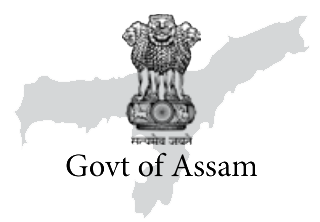To bring a revolutionary structural and transformative reforms in higher education in Assam, the State Government has formally launched the Model Framework of National Education Policy (NEP), 2020 for Undergraduate (UG) and Postgraduate (PG) programmes in the first week of June, 2023 under the aegis of the strong leadership of its Chief Minister Dr. Himanta Biswa Sarma. Indeed, this was a much-needed reform to revisit and reframe the goals, institutional structure, curriculum, pedagogy, research, and assessment methods with the growing demands of the 21st century economy and society, and to reflect the educational aspirations of the country’s bid to become a knowledge and technology-driven society.
Since the NEP seeks to instil a rootedness and pride in India, and its “rich, diverse, ancient and modern culture and knowledge systems and traditions”, I am of the opinion that education should be inculcated among the students group through the four ideologies of Shankaracharya: sravanam (listening with utmost attention), swadhyaya (self-study with full concentration), mananam (recollecting or reminiscing what they learned from self-study or heard from teacher) and nidhidhyasana (deeper into the knowledge which they acquired with the help of contemplation and self-inquiry (vichara) in the higher educational institutions of Assam.
To adopt and implement NEP-2020, we have been working on a mission mode for a smooth and productive common framework of all higher education institutions (HEIs) in the State. Accordingly, the NEP Implementation Cell was institutionalised at the Directorate of Higher Education (DHE) and an NEP Monitoring Committee was constituted by the Department of Higher Education.
Further, the Department of Education has formed a State-Level Quality Assurance Cell for National Assessment and Accreditation Council (NAAC) Accreditation and Quality Benchmarking of Institutions. A committee was formed to identify the Massive Open Online Courses (MOOCs) from Study Webs of Active-Learning for Young Aspiring Minds (SWAYAM) and Infosys-Springboard. Faculty members and institutions were oriented towards NEP by holding various workshops and cluster-level training programmes.
Further, the Education Department has played the nodal and coordinating role in terms of providing the HEIs of the State with a common platform to arrive at a productive consensus and common framework. While quality of education and inclusivity have been the prime concerns, adoption of a bottom-up approach and involvement of multiple stakeholders at different levels for arriving at important decisions have been the highlight of this endeavour. As such, this transition is quality-driven, holistic as well as democratic and can be accepted as a watershed and a paradigm shift in the way higher education is perceived.
Universities and colleges alike had put in concerted efforts to further the cause and this ensured that NEP could see the light of day in Assam. The journey from “What to do” to “How to do it” has been a painstaking task for all stakeholders involved but the commitment to do it sincerely has driven all of us towards a common goal of a better and brighter education prospects in the higher education scenario of Assam.
We intend to roll out NEP 2020 in higher education from the academic session 2023-24 in State universities, deemed-to-be university, and autonomous colleges. It is envisaged that being multidisciplinary institutions of higher learning that offer UG, PG and Ph.D programmes, the affiliating universities in the State will take the lead role by introducing Four Year Undergraduate Programme in its campuses in the ensuing academic session. They are also tasked to develop synergy among affiliated colleges for holistic implementation of the policy. Each of the HEIs will integrate its academic plans ranging from curricular improvement to quality of classroom transaction and capacity building, into their institutional development plans (IDP).
Some salient features of NEP 2020 aimed at improving the quality of higher education in India include:
Uniformity across educational institutions: Universities and other autonomous entities are encouraged to devise their curriculum following the UGC Curriculum and Credit Framework for Undergraduate Programme, 2022. This will help to maintain uniformity across educational institutions in the State, making it easier for students to transfer credits and move between institutions.
Outcome-based learning: Universities are expected to adopt outcome-based learning approaches, which explicitly define the course/programme outcomes in the curriculum. This will help to ensure that students are learning the skills and knowledge that they need to succeed in the workforce.
Mentoring of affiliated colleges: Affiliating universities in Assam will be responsible for mentoring their affiliated colleges so that they develop capabilities and achieve minimum benchmarks in academic and curricular matters, teaching and assessment. This will help to improve the quality of education at these colleges.
Encouragement to research: Teachers in all higher education institutions, particularly colleges, are encouraged to be engaged in research and attain recognition as research supervisors. Affiliating universities will prepare a roadmap with guidelines for granting such recognition
These salient features of NEP 2020 have the potential to make a significant difference in the lives of our students and the future of the country.
(The author is Education Adviser to the Government of Assam.)













